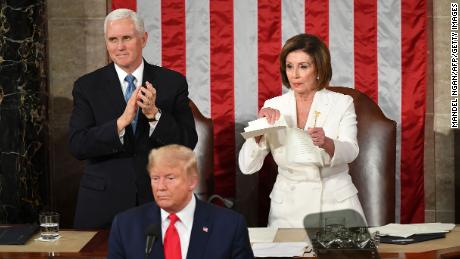FDR’s dizzying pace in 1933 made the first 100 days a standard by which new presidents are judged.
Roosevelt passed 16 major bills and more than 50 other laws that transformed the American economy and society. He funded government jobs to ease unemployment and passed an agriculture law to ease poverty and hunger among farmworkers. Banking regulations staved off an economic collapse.
Joseph Robinette Biden, who took office amid the greatest domestic crisis since Roosevelt, is earning generally favorable reviews as he marks the milestone on Wednesday night with a joint address to Congress. The President honored his word to get vaccine shots in arms and stimulus checks in bank accounts. He passed his Covid-19 rescue plan worth $1.9 trillion, rejoined the Paris climate accord and restored White House decorum. His approval rating is above 50% — a level never reached by ex-President Donald Trump — and three-quarters of Americans back his pandemic leadership.
Presidents usually address Congress within weeks of taking office to inject momentum into their programs. But Biden was smart to wait: He can report a job well done to his big TV audience.
With the pandemic beginning to ease in the US, Wednesday night’s speech (0100 GMT Thursday) also marks a pivot point to an ambitious agenda that faces a deeply uncertain future.
Biden has a $2 trillion plan to mend and reimagine American infrastructure and has a proposal nearly as big to fund child care, free kindergarten, paid family and medical leave, and other steps to ease the burden on US workers. He’s planning a massive 21st-century low-carbon economy. Democrats are pushing sweeping police and electoral reforms. Biden plans to pay for all this partly by raising taxes on corporations and the richest Americans, who were given big breaks by Trump. It’s potentially the most ambitious rebalancing of US society since President Lyndon Baines Johnson in the 1960s.
Unlike FDR, Biden lacks crushing Democratic majorities in Congress. Even if all Senate Democrats are on board, Vice President Kamala Harris will have to cast deciding votes in the 50-50 chamber. And Republicans can stall much of his program by demanding a 60-vote supermajority.
So whether JRB becomes another FDR or LBJ is still TBD.
‘Madam Speaker, the President of the United States’
The sergeant-at-arms will herald a very different kind of presidential address when Biden arrives in the House of Representatives on Wednesday night. Presidents are required by the Constitution from “time to time” to offer a report on the “State of the Union” to lawmakers. That evolved in the 20th century to an annual in-person address by presidents, who love the attention. (The speech is called a State of the Union in most years, but it’s referred to as a joint address to Congress when it’s delivered by a new president.)
The most obvious difference between this and any other year is that Biden will walk into a socially distanced chamber. There will be none of the hugs and back slapping that normally greet POTUS from lawmakers who camp out in aisle seats for hours to get their moments on TV.
Biden, in keeping with his strict adherence to anti-Covid protocols, will wear a mask until he begins to speak. Only 200 lawmakers will be on the House floor. Cabinet members are not expected to attend, and Chief Justice John Roberts will be the sole representative from the Supreme Court.
The most striking and historically important moment of the night will be when Biden speaks directly in front of the first female speaker of the House, Nancy Pelosi, and Harris, the first female vice president. But there will be no theatrical standing ovations from massed ranks of Democratic benches. This will dilute the visual effect of the address. But it may also help Biden project a sense of seriousness and will implicitly show Americans the pandemic isn’t over.
“There are only going to be the most senior officials as determined by the parties, and so they are likely to be less partisan and rabble rousing, and so it will be a more respectful audience,” said Aaron Kall, the director of the debate program at the University of Michigan and an expert on presidential rhetoric.
Speaking of respect, there’s one thing we know for sure: There will be no repeat of what happened after Trump’s last State of the Union address, when a disgusted Pelosi brazenly ripped up her copy of the speech in front of the cameras.





